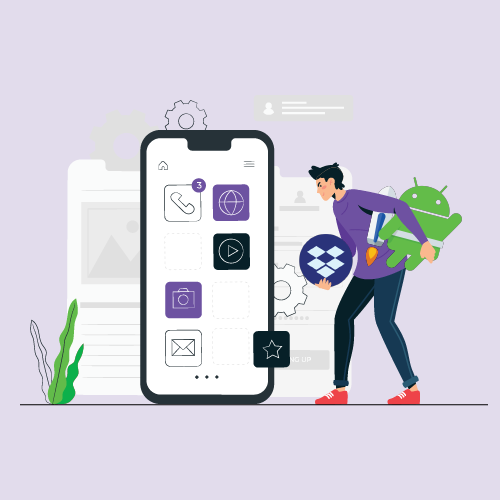Messaging apps have made communication faster, simpler, and effective.
They have made it possible to connect with people in real-time and share every moments in the form of pictures, emoticons, audio/video calls, and more.
But even amidst a series of benefits, one core challenge remains.
Although almost all the messaging applications operate with ‘client-to-server’ communication where a unique ID is linked with each thread, the databases are centralized. Because of this, the risk of volatility, censorship, network blocking, and other controlled policies emerge as a barrier to delivering instant and effective communication experience.
However, with the advent of Blockchain, the instant messaging platforms are getting a push towards encryption.
The technology, that brought a significant impact on the whole economy, is making it possible to develop a communication network that’s unstoppable, unbreakable, and impossible to hack. This has made various instant messaging brands turn towards Blockchain – with Facebook and Telegram being the two popular names.
- Facebook released Libra, a global currency and financial infrastructure that empowers billions of users. The brand also developed a digital wallet, Calibra where users can store funds from different payment providers like MasterCard, PayPal, Stripe, and Visa and send Libra through their smartphones.
- Whereas, Telegram – the instant messaging platform developed by Pavel Durov and Nikolai Durov – is relying on the technology to launch its own Blockchain-based project, TON (Telegram Open Network). Something we will talk about in detail in this blog.
What is Telegram Open Network (TON)
TON is a blockchain-powered network project designed to manage millions of transactions every second in a faster, secure, and scalable manner. The project, as per Telegram experts, is created with the intent to overcome the inability of existing blockchain platforms in terms of encouraging widespread cryptocurrency adoption. Something for which they raised a funding of around $1.7B last year.
A glimpse of TON project can also be taken from this video:-
What TON Means to Blockchain Developers
Telegram’s blockchain is based on a Proof-of-Stake (PoS) protocol and is compatible with Ethereum-based software. It is expected to feature sharding and several functional consensus mechanisms. And soon, rise on top as a competitor of Ethereum’s Smart contracts and dApps in terms of scalability.
At present, Telegram has released its TON code and documentation for testnet along with Block explorers. These codes (written in Fift programming language) and documentation will empower Blockchain app developers to easily download a version of TON blockchain software. This will further serve them support for nodes and validators to effectively verify issues like bugs and other errors. Whereas, the Block explorer will help them observe the networks efficiently.
“Source code for a full node that can access testnet, create and validate blocks has been released. Lite client was released several months ago. TON Labs will release a Public Beta of its developer tools suite on Monday,” said Mitja Goroshevsky, CTO of TON Labs.
Here’s When TON Project will be Released
While the release date of Telegram Blockchain project is not confirmed yet, it is expected to enter the market any time before 31st Oct, 2019.
Telegram’s Blockchain Plans for the Future
Apart from the upcoming Telegram Blockchain network that will be live by this October, the company is also planning to release the initial batch of TON blockchain’s native token, GRAM within the next two months. The company is also heading towards giving its 200M+ users access to GRAM wallets.
Also, TON Labs, their subsidiary creating technological products and services, is working on a Solidity compiler tool to authorize Ethereum dApps and empower Blockchain developers in migrating their code over to TON.
This, as a whole, gives a clear indication that integration of Blockchain in Facebook and Telegram’s business model will bring a revolutionary impact on the messaging world. Making it imperative for other messaging platforms to consult with the top Blockchain consultants and introduce the technology into their processes to remain in the market.



Is Blockchain the Answer to Fighting Coronavirus Outbreak?
The victim-count of Coronavirus has increased to 28,276 while taking 565 lives already. With the virus epidemic being on the verge of becoming pandemic, there is a cloud of concern hovering over not just the affected nations but also the rest of the entire world. The grim picture of Coronavirus is not just of the…

Modern Android App Architecture with Dropbox Store and JetPack
A few days ago, Dropbox acquired an open-source Store library. The aim behind taking the ownership was to modify it to make it more suitable to the prevailing Android developer ecosystem. Now, Store also includes Google JetPack collection of libraries which poses as a solution for creating current-day Android apps. Google JetPack makes it possible…









